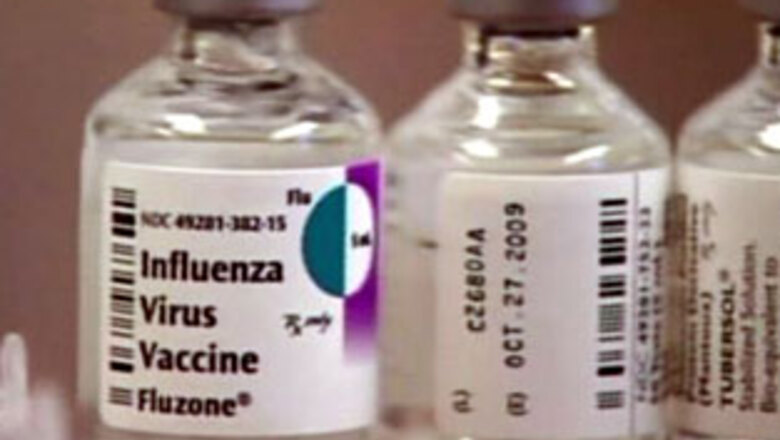
views
Hyderabad: An NRI who landed in Hyderabad from Texas with suspected symptoms of Swine flu has not turned up at a Government-run hospital despite the advice of doctors. Now the health authorities are keeping a watch on him.
For the second consecutive day, the 26-year-old youth failed to turn up at Andhra Pradesh Government Chest Hospital, the nodal centre to deal with such cases.
The officials of medical and health department are trying to convince the youth to undergo necessary tests at the hospital, which has the required wherewithal including four rooms for quarantine.
The officials, however, said there was no need for panic as it was not yet confirmed if the man from Texas had symptoms of the epidemic. The first swine flu death outside Mexico took place in Texas.
Principal Secretary, medical and health, L V Subramanyam, said that the man suffering from cold and related complaints approached a corporate hospital on his own after landing on Tuesday.
The doctors advised him to approach the Institute of Preventive Medicine (IPM), where he underwent preliminary tests for cold and respiratory problems Wednesday. The IPM later referred him to the chest hospital, a notified facility which has pulmonologists.
"We will make him undergo tests at the chest hospital. Though his family says that he is hale and hearty, we don't want to take any risk as anybody suffering from flu will have to be isolated to prevent the spread of the disease," Subramanyam said.
Director Medical Education, Sudha Ramna, however, said the man is "perfectly alright" and that it was a "false alarm".
The man and his family members refused to meet a team of officials sent by the department to his house Thursday morning, saying this would give a feeling to their neighbours that he is afflicted by the disease.
Subramanyam, however, denied he was found to have symptoms of the flu during the screening at the airport soon after his arrival from Texas.
A team of two doctors with two ambulances has been deployed at Rajiv Gandhi International Airport here since Wednesday to screen the passengers who have visible signs of flu like cold, fever and upper respiratory infection.
The authorities are keeping a watch on those passengers arriving from the countries hit by the flu. If anybody is found with the symptoms, he has to be isolated and put on Tamiflu.
However, the authorities have no diagnostic facilities here. "The throat swab or blood samples of suspected cases have to be sent to Virology lab in Pune," he said.
SWINE FLU FACTS
What exactly is Swine flu and why does its raise such fears?
- Swine flu is a respiratory disease associated with pigs PAGE_BREAK
- In this case the H1N1 strain of Swine flu has affected humans
- It's a combination of four viral strains and is spreading through human-to-human contact
- This means it can continue to mutate making it hard to treat
- H1N1 viruses characterised in this outbreak has not been previously detected in pigs or humans
- The symptoms are similar to those of regular flu - fever, cough, sore throat, body aches, headaches, chills, fatigue, diarrhea, and vomiting
- There is no vaccine for the virus, though experts recommend the use Tamiflu within 48 hours of the onset of symptoms
- As a precautionary measure, people are being advised to avoid travel to affected areas
- Avoid exposure to people who have the flu and follow good hygiene practices like washing hands regularly
155 confirmed swine flu cases reported worldwide
At least 19 people in four European countries were on Thursday morning confirmed to have been infected with swine flu while 155 cases were confirmed worldwide, a European health agency reported.
The confirmed European cases were in Britain, Germany, Spain and Austria, the Swedish-based European Centre for Disease Prevention and Control (ECDC) said.
In addition, France reported two suspected cases, the agency said. In all but one of the cases in Europe the people had visited Mexico.
The confirmed cases outside Europe included 26 in Mexico and seven deaths, 91 in the US, 19 in Canada, 14 in New Zealand, two in Israel, two in Costa Rica and one in Peru, the ECDC said.
The ECDC tally did not include that of a 19-year-old man in Switzerland who was Thursday reported to be that country's first case of swine flu.
The ECDC on late Wednesday issued a statement supporting the World Health Organization's decision to raise the pandemic alert level for the swine flu virus it prefers to call novel influenza virus A (H1N1).
The ECDC with headquarters in Sweden began to operate in 2005.




















Comments
0 comment